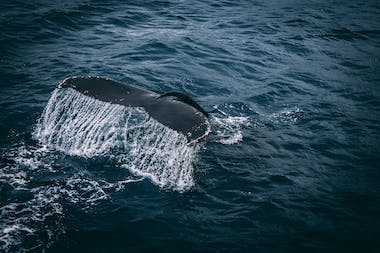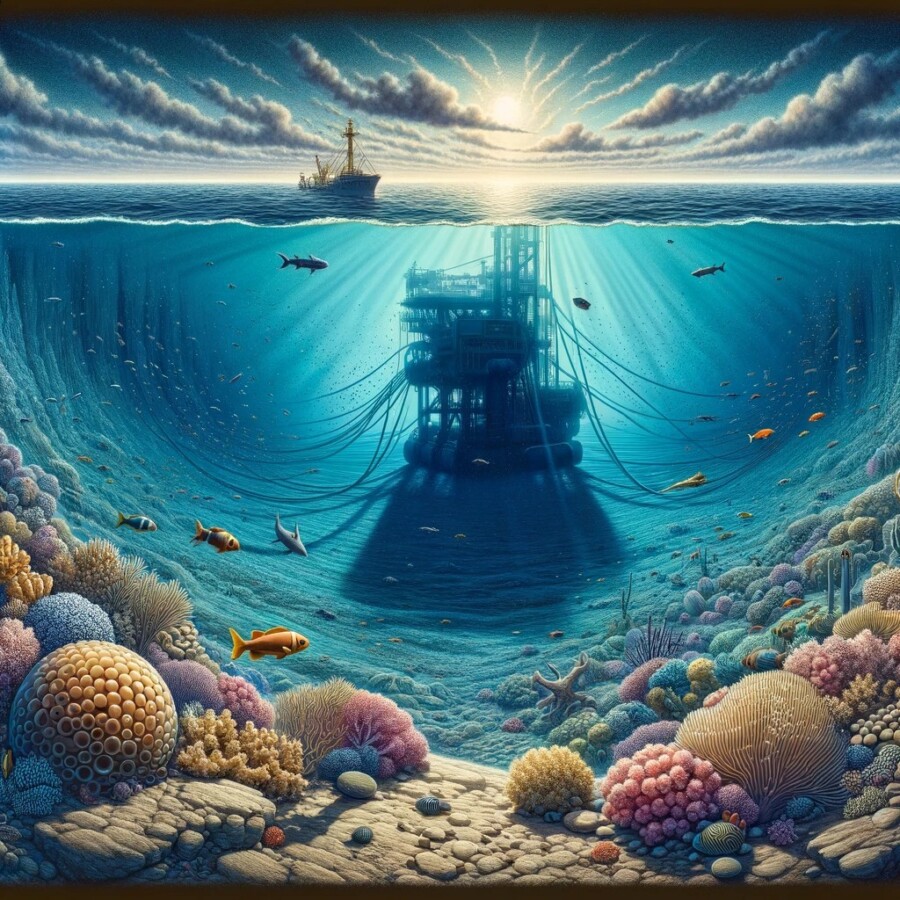The oceans are now hotter than ever before, even more than the last record in 2016, says a group that studies climate change called Copernicus. The average temperature of the sea surface around the world was about 20.96C (69.73F), which is much hotter than usual for this time of year. This is bad for our planet because warm water can’t take in as much carbon dioxide, which means more of this gas that heats up our planet stays in the air. Also, it can make glaciers melt faster and change the lives of sea animals, which can mess up the food chain.
Scientists are worried because usually, the oceans are hottest in March, not August. A scientist named Dr. Samantha Burgess from Copernicus says this makes us wonder how much hotter the ocean will get between now and next March. The oceans take in most of the heat from gases that come from burning things like coal and oil, and the more we burn these, the longer it will take for the oceans to cool down again. This new record comes after a lot of unusually hot periods in the sea this year, in places like the UK, the North Atlantic, the Mediterranean, and the Gulf of Mexico.
In simple words, our oceans are getting hotter because of the gases we release when we burn things like coal and oil. This is bad for our planet and for the animals that live in the sea. Scientists are worried because the oceans are getting hotter at a time they usually don’t, and they are afraid it might get even hotter in the future.
Original news source: Ocean heat record broken, with grim implications for the planet (BBC)
Listen
Slow
Normal
Fast
Group or Classroom Activities
Warm-up Activities:
– News Summary
Instructions: Divide the students into pairs or small groups. Give each group a copy of the article. Have them read the article and work together to create a summary of the main points. Encourage them to use their own words and keep it concise.
– Vocabulary Pictionary
Instructions: Write down 10-15 vocabulary words from the article on separate pieces of paper or index cards. Divide the students into teams. One player from each team comes up and chooses a word. Without speaking, they must draw a picture to represent the word while their team tries to guess. The team that guesses correctly gets a point. Repeat with new players and words until all the vocabulary words have been used.
– Pros and Cons
Instructions: Divide the students into two groups. One group will discuss the pros of the oceans getting hotter, while the other group will discuss the cons. Give them a few minutes to brainstorm and then have each group take turns sharing their ideas. Encourage them to use reasons and examples to support their arguments.
– Keyword Taboo
Instructions: Write down 5-10 important keywords from the article on separate pieces of paper or index cards. Divide the students into pairs or small groups. Each group takes turns choosing a card and describing the keyword to their partner(s) without using the word itself. The partner(s) must guess the keyword based on the description.
– Future Predictions
Instructions: Have the students imagine they are scientists studying climate change. Ask them to write or discuss their predictions for what might happen to the oceans in the future if they continue to get hotter. Encourage them to think about the potential consequences for the environment, wildlife, and human life.
Comprehension Questions:
1. What is the name of the group that studies climate change?
2. Why is it bad for our planet when the oceans get hotter?
3. What happens to the carbon dioxide when the water is warm?
4. How can warm water affect glaciers?
5. How can warm water affect sea animals?
6. Why are scientists worried about the ocean temperatures in August?
7. What causes the oceans to get hotter?
Go to answers ⇩
Listen and Fill in the Gaps:
The oceans are now hotter than ever before, even more than the last record in 2016, says a group that (1)______ climate (2)______ called Copernicus. The average temperature of the sea surface around the world was about 20.96C (69.73F), which is much hotter than usual for this time of year. This is bad for our (3)______ because warm water can’t take in as much carbon dioxide, which means more of this gas that heats up our planet stays in the air. Also, it can make glaciers melt faster and change the lives of sea animals, which can mess up the food chain.
Scientists are worried because usually, the oceans are (4)______ in (5)______, not August. A (6)______ named Dr. Samantha Burgess from Copernicus says this makes us wonder how much hotter the (7)______ will get between now and next March. The oceans take in most of the heat from gases that (8)______ from burning things like coal and oil, and the more we burn these, the longer it will take for the oceans to cool down again. This new record comes after a lot of unusually hot periods in the sea this (9)______, in places like the UK, the North Atlantic, the Mediterranean, and the (10)______ of Mexico.
In simple words, our (11)______ are (12)______ hotter because of the gases we release when we burn things like coal and oil. This is bad for our planet and for the animals that live in the sea. Scientists are worried because the oceans are getting hotter at a time they usually don’t, and they are afraid it might get even hotter in the future.
Go to answers ⇩
Discussion Questions:
Students can ask a partner these questions, or discuss them as a group.
1. What does it mean if the oceans are hotter than usual?
2. How do you think warm water affects the amount of carbon dioxide in the air?
3. Do you think it’s good or bad that warm water can make glaciers melt faster? Why or why not?
4. How do you think the lives of sea animals can be changed by hotter oceans?
5. Why are scientists worried about the oceans being hotter in August instead of March?
6. How do you think burning things like coal and oil can make the oceans hotter?
7. Do you think it’s important to cool down the oceans? Why or why not?
8. How do you think hotter oceans can affect the planet?
9. How would you feel if you lived near the ocean and it was getting hotter?
10. Do you like swimming in warm water? Why or why not?
11. Do you think it’s fair that sea animals have to suffer because of hotter oceans? Why or why not?
12. What can we do to help make the oceans cooler?
Individual Activities
Vocabulary Meanings:
Match each word to its meaning.
Words:
1. oceans
2. hotter
3. record
4. temperature
5. carbon dioxide
6. glaciers
7. animals
8. worried
Meanings:
(a) How hot or cold something is
(b) The highest or best achievement or result ever
(c) Feeling anxious or concerned about something
(d) Living creatures that are not plants or humans
(e) Having a higher temperature than before
(f) A gas that is released when we burn things and makes the Earth warmer
(g) Large masses of ice that move slowly
(h) Large bodies of saltwater that cover the Earth
Go to answers ⇩
Multiple Choice Questions:
1. Why is it bad for our planet when the oceans get hotter?
(a) Warm water makes the sea animals happy.
(b) Warm water helps the glaciers grow bigger.
(c) Warm water can’t take in as much carbon dioxide.
(d) Warm water makes the food chain stronger.
2. What does warm water do to carbon dioxide?
(a) It can’t take in as much carbon dioxide.
(b) It makes carbon dioxide disappear.
(c) It turns carbon dioxide into oxygen.
(d) It makes carbon dioxide colder.
3. What can happen when glaciers melt faster?
(a) It can mess up the food chain.
(b) It can make the oceans cooler.
(c) It can make the sea animals happier.
(d) It can make the air cleaner.
4. Why are scientists worried about the oceans getting hotter in August?
(a) The oceans are usually hottest in August.
(b) The oceans are usually hottest in December.
(c) The oceans are usually hottest in May.
(d) The oceans are usually hottest in March.
5. What do the oceans take in from burning things like coal and oil?
(a) Water from gases.
(b) Heat from gases.
(c) Oxygen from gases.
(d) Carbon dioxide from gases.
6. What happens when the oceans take in heat from gases?
(a) The oceans get colder.
(b) The oceans stay the same temperature.
(c) The oceans turn into ice.
(d) The oceans get hotter.
7. Why do scientists think the oceans might get even hotter in the future?
(a) Because we stop burning coal and oil.
(b) Because we have too much ice in the oceans.
(c) Because we keep burning coal and oil.
(d) Because we don’t have enough sea animals.
8. Where have there been unusually hot periods in the sea this year?
(a) The UK, the South Atlantic, the Pacific Ocean, and the Indian Ocean.
(b) The UK, the North Atlantic, the Mediterranean, and the Gulf of Mexico.
(c) The UK, the Arctic Ocean, the Caribbean Sea, and the Red Sea.
(d) The UK, the Southern Ocean, the Black Sea, and the Caspian Sea.
Go to answers ⇩
True or False Questions:
1. Warm water can absorb the same amount of carbon dioxide, which is good for the planet.
2. This year, there have been many unusually hot periods in the sea in different places.
3. Scientists are concerned because the oceans are usually hottest in March, not August.
4. The oceans are currently colder than they have ever been before.
5. The more coal and oil we burn, the longer it will take for the oceans to cool down.
6. Scientists are not worried that the oceans will continue to get hotter in the future.
7. When glaciers melt faster, it does not cause problems for sea animals and the food chain.
8. The oceans absorb most of the heat from gases released by burning coal and oil.
Go to answers ⇩
Write a Summary:
Write a summary of this news article in two sentences.
Check your writing now with the best free AI for English writing!
Writing Questions:
Answer the following questions. Write as much as you can for each answer.
Check your answers with our free English writing assistant!
1. What is the problem with the oceans getting hotter?
2. Why is warm water bad for our planet?
3. What happens when glaciers melt faster?
4. How can the hotter oceans affect sea animals?
5. Why are scientists worried about the oceans getting hotter?
Answers
Comprehension Question Answers:
1. What is the name of the group that studies climate change?
The group that studies climate change is called Copernicus.
2. Why is it bad for our planet when the oceans get hotter?
It is bad for our planet when the oceans get hotter because warm water can’t take in as much carbon dioxide, which means more of this gas that heats up our planet stays in the air. It can also make glaciers melt faster and change the lives of sea animals, which can mess up the food chain.
3. What happens to the carbon dioxide when the water is warm?
When the water is warm, it can’t take in as much carbon dioxide. This means that more of the carbon dioxide stays in the air and contributes to the greenhouse effect, which heats up our planet.
4. How can warm water affect glaciers?
Warm water can affect glaciers by making them melt faster. When glaciers melt, it can lead to rising sea levels, which can cause problems for coastal areas.
5. How can warm water affect sea animals?
Warm water can affect sea animals by changing their habitats and food sources. Some sea animals may not be able to survive in warmer water, while others may have difficulty finding enough food.
6. Why are scientists worried about the ocean temperatures in August?
Scientists are worried about the ocean temperatures in August because usually, the oceans are hottest in March, not August. This makes them wonder how much hotter the ocean will get between now and next March.
7. What causes the oceans to get hotter?
The oceans get hotter because of the gases we release when we burn things like coal and oil. These gases trap heat in the atmosphere, which in turn warms up the oceans.
Go back to questions ⇧
Listen and Fill in the Gaps Answers:
(1) studies
(2) change
(3) planet
(4) hottest
(5) March
(6) scientist
(7) ocean
(8) come
(9) year
(10) Gulf
(11) oceans
(12) getting
Go back to questions ⇧
Vocabulary Meanings Answers:
1. oceans
Answer: (h) Large bodies of saltwater that cover the Earth
2. hotter
Answer: (e) Having a higher temperature than before
3. record
Answer: (b) The highest or best achievement or result ever
4. temperature
Answer: (a) How hot or cold something is
5. carbon dioxide
Answer: (f) A gas that is released when we burn things and makes the Earth warmer
6. glaciers
Answer: (g) Large masses of ice that move slowly
7. animals
Answer: (d) Living creatures that are not plants or humans
8. worried
Answer: (c) Feeling anxious or concerned about something
Go back to questions ⇧
Multiple Choice Answers:
1. Why is it bad for our planet when the oceans get hotter?
Answer: (c) Warm water can’t take in as much carbon dioxide.
2. What does warm water do to carbon dioxide?
Answer: (a) It can’t take in as much carbon dioxide.
3. What can happen when glaciers melt faster?
Answer: (a) It can mess up the food chain.
4. Why are scientists worried about the oceans getting hotter in August?
Answer: (d) The oceans are usually hottest in March.
5. What do the oceans take in from burning things like coal and oil?
Answer: (b) Heat from gases.
6. What happens when the oceans take in heat from gases?
Answer: (d) The oceans get hotter.
7. Why do scientists think the oceans might get even hotter in the future?
Answer: (c) Because we keep burning coal and oil.
8. Where have there been unusually hot periods in the sea this year?
Answer: (b) The UK, the North Atlantic, the Mediterranean, and the Gulf of Mexico.
Go back to questions ⇧
True or False Answers:
1. Warm water can absorb the same amount of carbon dioxide, which is good for the planet. (Answer: False)
2. This year, there have been many unusually hot periods in the sea in different places. (Answer: True)
3. Scientists are concerned because the oceans are usually hottest in March, not August. (Answer: True)
4. The oceans are currently colder than they have ever been before. (Answer: False)
5. The more coal and oil we burn, the longer it will take for the oceans to cool down. (Answer: True)
6. Scientists are not worried that the oceans will continue to get hotter in the future. (Answer: False)
7. When glaciers melt faster, it does not cause problems for sea animals and the food chain. (Answer: False)
8. The oceans absorb most of the heat from gases released by burning coal and oil. (Answer: True)
Go back to questions ⇧















